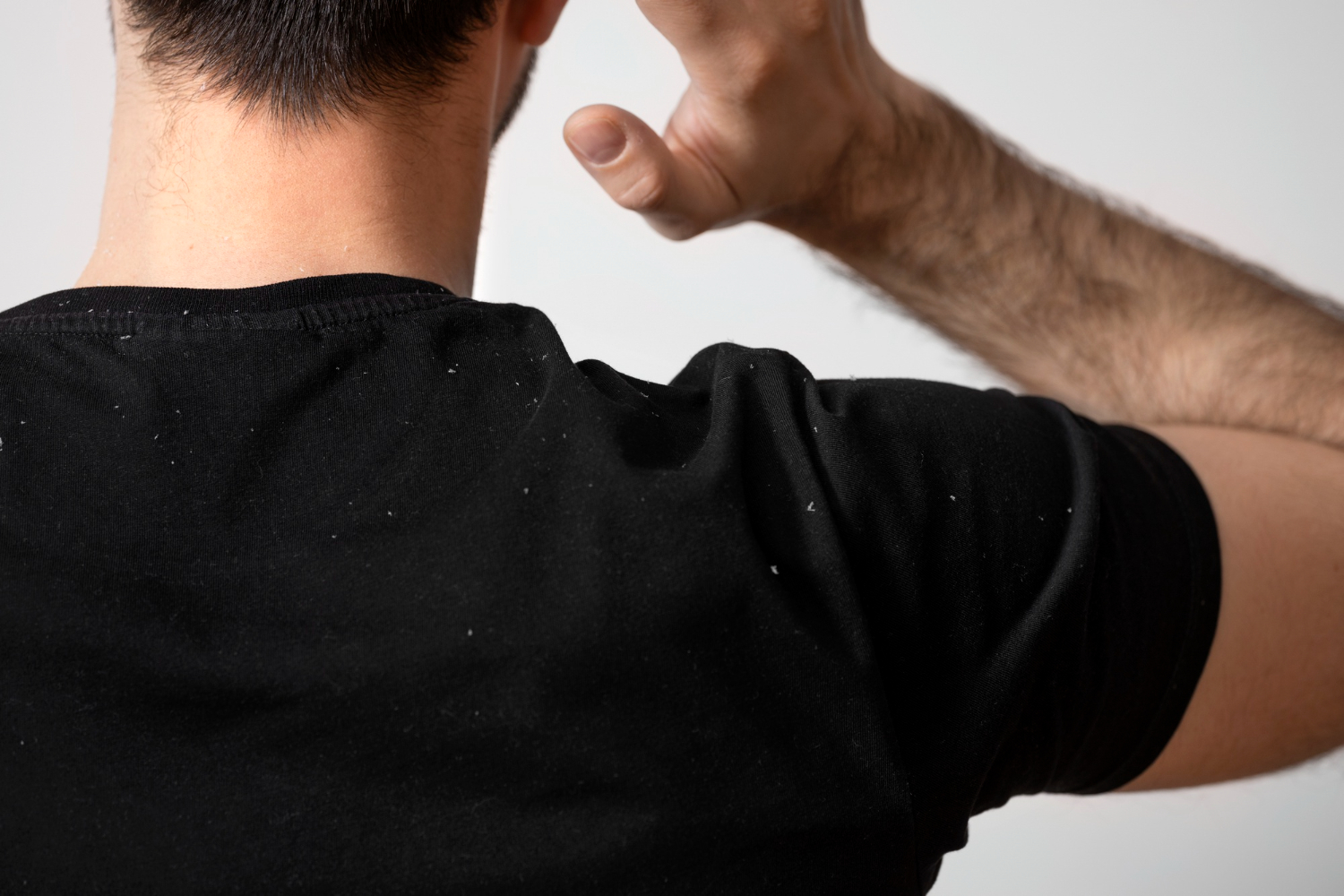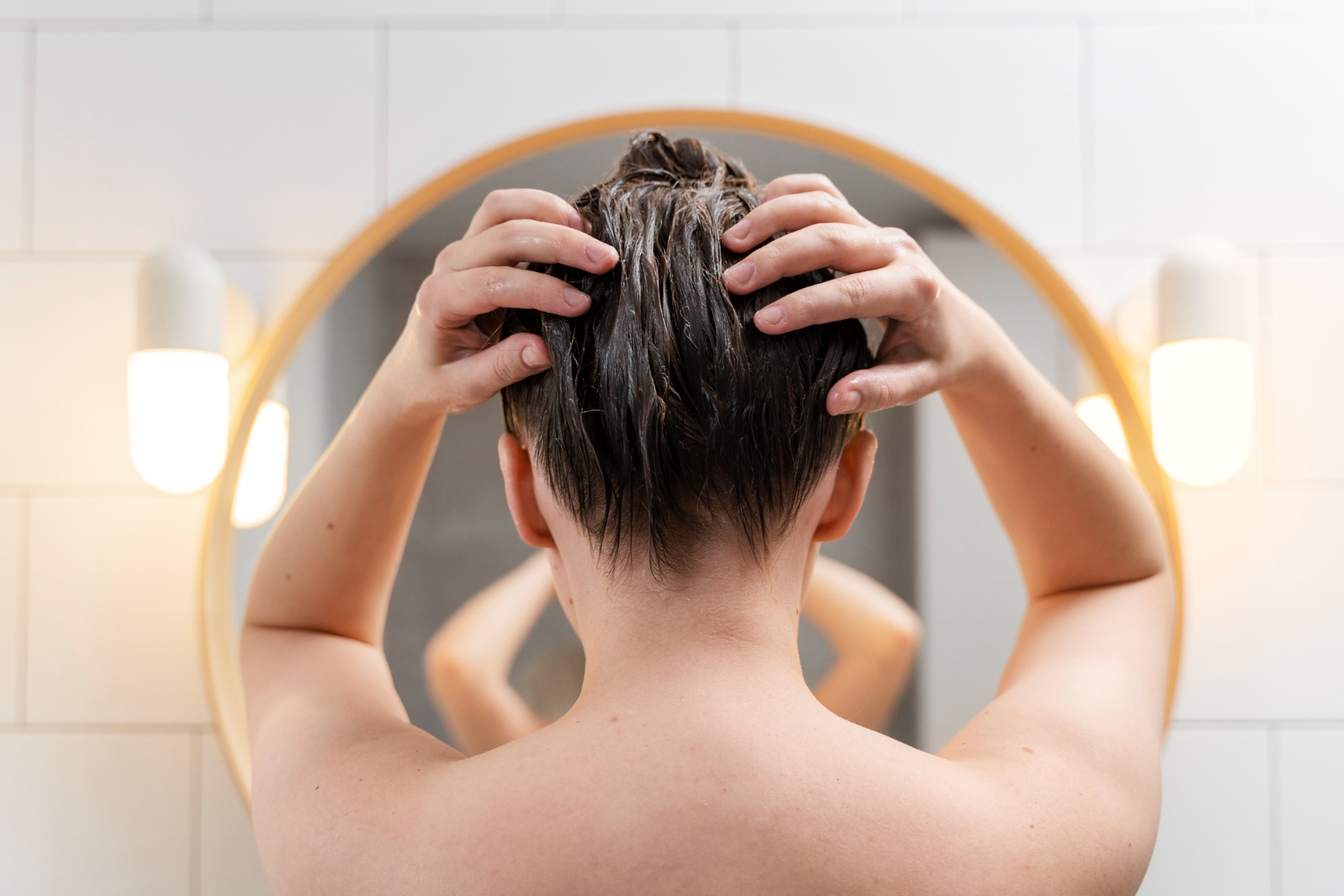
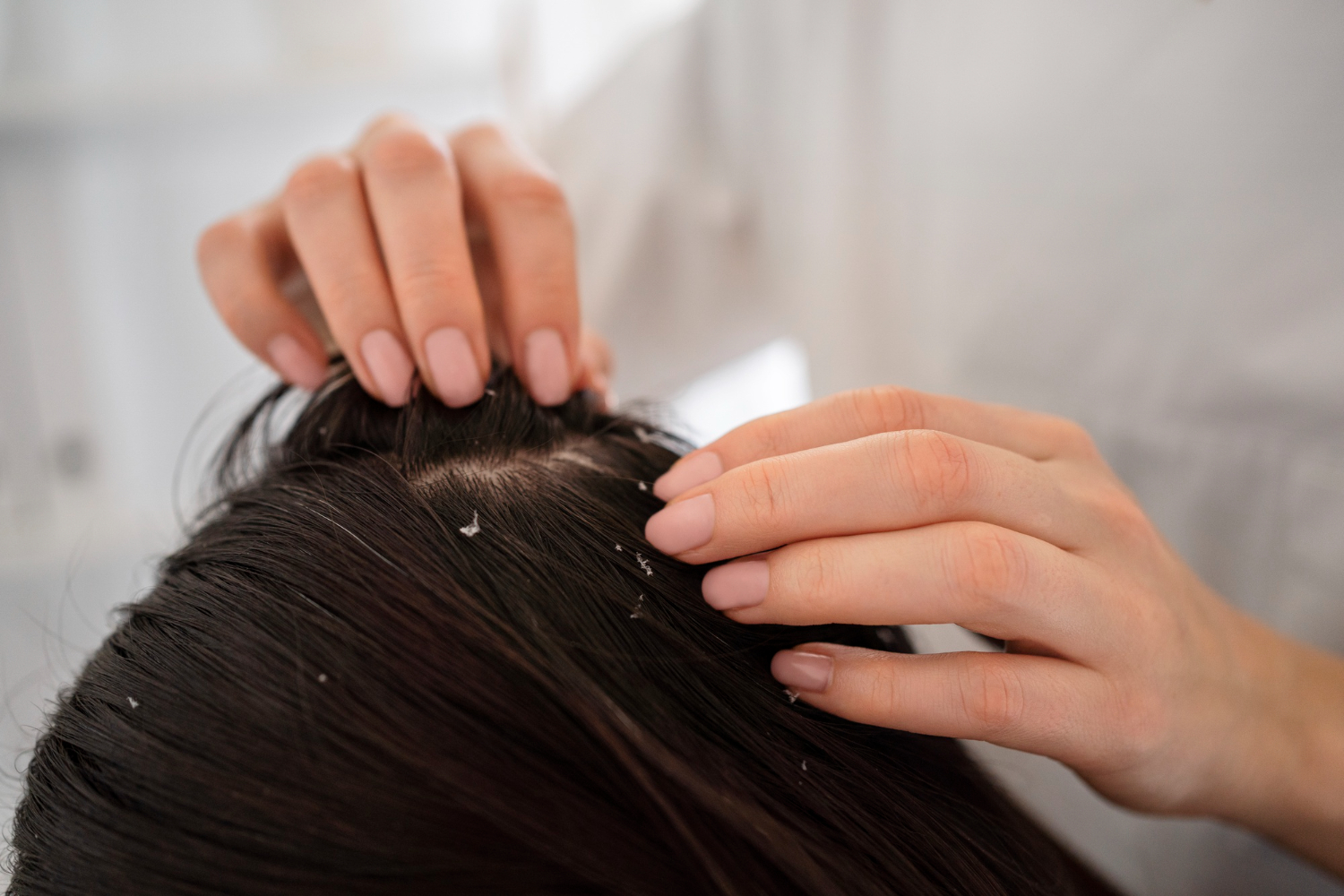
Dealing with dandruff can be frustrating, especially when it seems to persist no matter how often you wash your hair. In Singapore, where the hot and humid climate can exacerbate scalp conditions, dandruff becomes an even more common problem. But here’s a lesser-known solution that could make all the difference: scalp exfoliation.
Scalp exfoliation has been gaining attention as an effective treatment for dandruff, offering a deeper level of care than regular shampooing alone. But what exactly is scalp exfoliation, and how can it help in combating dandruff, especially in a tropical environment like Singapore’s? Let’s dive into it.
Before discussing how exfoliation can help, it’s essential to understand what dandruff is. Dandruff is a common scalp condition that causes flakes of skin to appear. These flakes are often accompanied by itchiness and irritation. Dandruff is primarily caused by the overproduction of oil (sebum) or by a yeast-like fungus called Malassezia, which feeds on the oils on your scalp.
If you’ve ever experienced flaky skin on your scalp, you’re not alone. Many Singaporeans face this issue, as the local weather conditions often aggravate the problem.
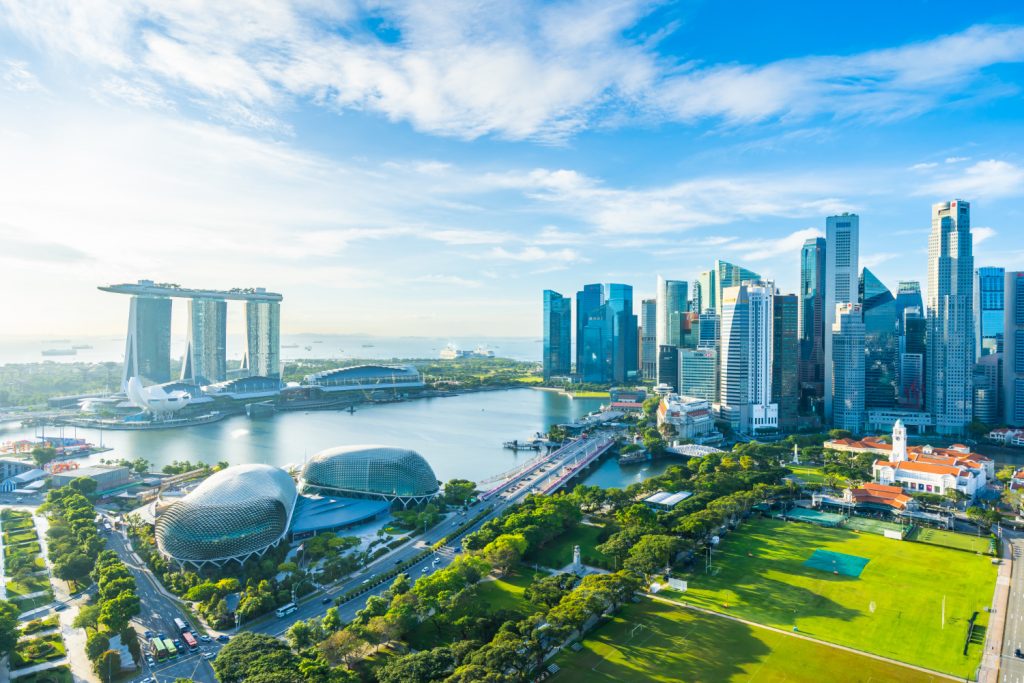
Singapore’s tropical climate plays a significant role in how our scalp behaves. The combination of heat, humidity, and perspiration can cause an imbalance in the scalp’s oil production. This creates the perfect environment for Malassezia to thrive, leading to more frequent dandruff outbreaks. So, while dandruff is generally a common issue worldwide, living in a hot, humid climate can make it even worse.
Scalp exfoliation is essentially the process of removing dead skin cells, excess oil, and product buildup from the surface of your scalp. It works similarly to exfoliating your face or body but requires a gentler approach to avoid irritation. By clearing away the dead skin and impurities, scalp exfoliation helps to create a healthier environment for hair growth and reduces the factors that contribute to dandruff.
There are two primary types of scalp exfoliation:
Scalp exfoliation offers multiple benefits that go beyond just cleaning your scalp. It can help with:
Dandruff is primarily caused by excess oils and dead skin cells on the scalp. When these aren’t adequately removed, they create an environment conducive to fungal growth. By exfoliating your scalp, you’re not only removing the physical flakes but also controlling the amount of oil on the scalp. This reduces the itchy, flaky feeling and helps prevent future dandruff flare-ups.
Moreover, exfoliation enhances the effectiveness of dandruff shampoos. Once the dead skin and buildup are cleared away, the active ingredients in anti-dandruff shampoos can penetrate more effectively.
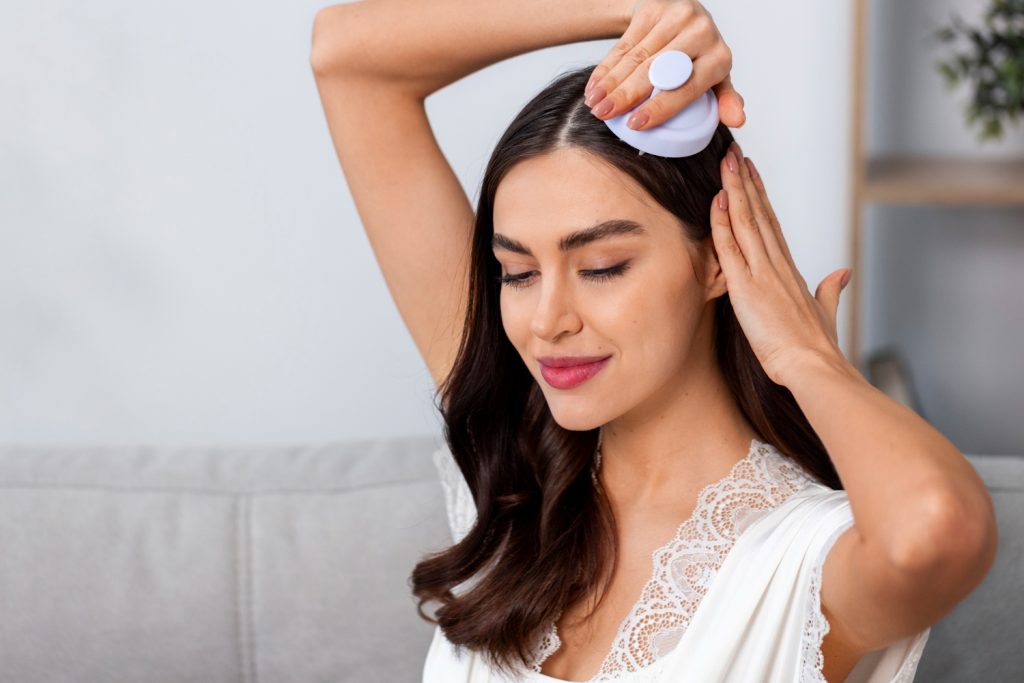
Exfoliation is beneficial, but too much of a good thing can lead to problems. Over-exfoliation can irritate your scalp, leading to more flaking and dryness. As a general rule, exfoliating your scalp once a week is sufficient for most people. If you have an oily scalp, you may increase the frequency to twice a week. Conversely, if you have sensitive or dry skin, you might want to stick to exfoliating every two weeks.
When choosing an exfoliant, it’s important to consider what ingredients will suit your scalp type. Here are some popular options:
If you prefer a more natural approach, you can make your own scalp exfoliator at home using ingredients found in your kitchen. Here’s a simple recipe to try:
Mix the ingredients together and gently massage the mixture into your scalp, focusing on problem areas. Leave it on for a few minutes before rinsing thoroughly.
Luckily, scalp exfoliation is becoming more mainstream, and you can find several exfoliating products in stores across Singapore. Some popular choices include:
These products are designed to gently exfoliate the scalp while nourishing your hair, making them ideal for Singapore’s humid conditions.
Not all scalps are the same, so it’s crucial to pick the right exfoliation method for your specific hair type. If you have an oily scalp, physical exfoliation with a grainy scrub can help reduce the excess sebum. If your scalp is sensitive or prone to dryness, opt for a mild chemical exfoliant with ingredients like salicylic acid.
Exfoliating your scalp too often or too harshly can cause more harm than good. Some signs of over-exfoliation include redness, irritation, and excessive dryness. It’s important to monitor how your scalp reacts and adjust your routine accordingly. Additionally, always follow up with a moisturising conditioner to replenish the scalp’s moisture barrier.
Exfoliation alone won’t solve dandruff problems, especially in Singapore’s tricky climate. Here are a few more tips to keep in mind:
Scalp exfoliation plays an essential role in treating dandruff, especially in a humid climate like Singapore’s. By removing dead skin cells, excess oils, and product buildup, exfoliation helps restore the scalp’s health and reduces dandruff flare-ups. For best results, combine exfoliation with a good anti-dandruff shampoo and a healthy scalp care routine. With the right approach, you can keep dandruff at bay and enjoy a healthy, itch-free scalp.

